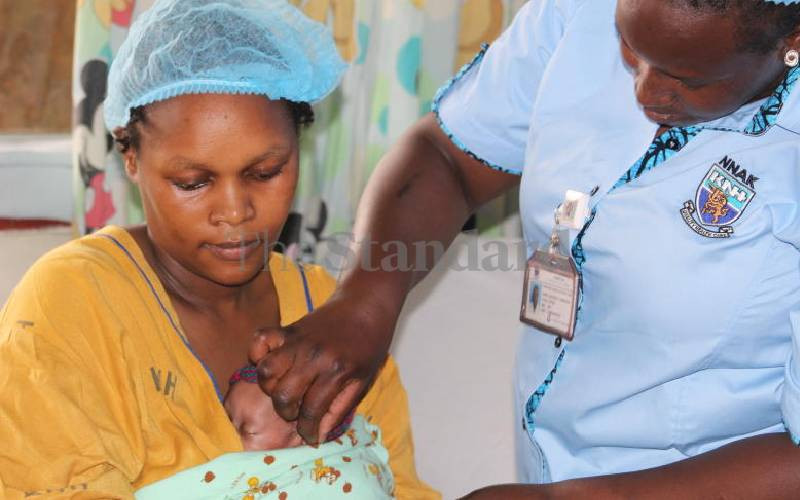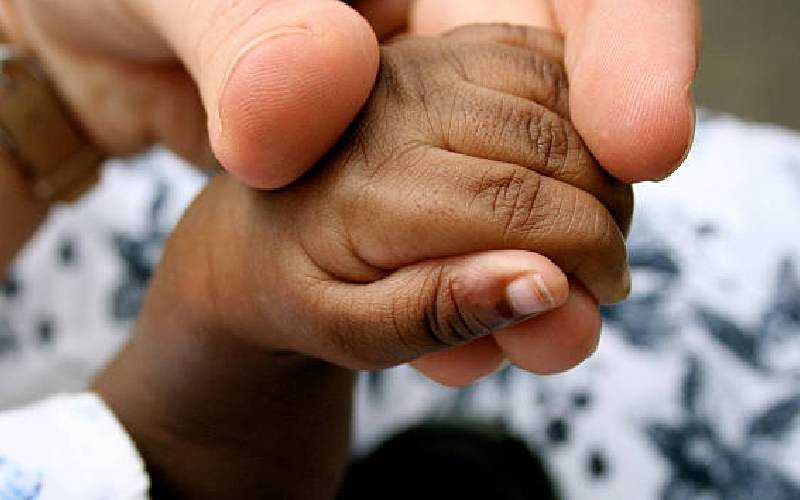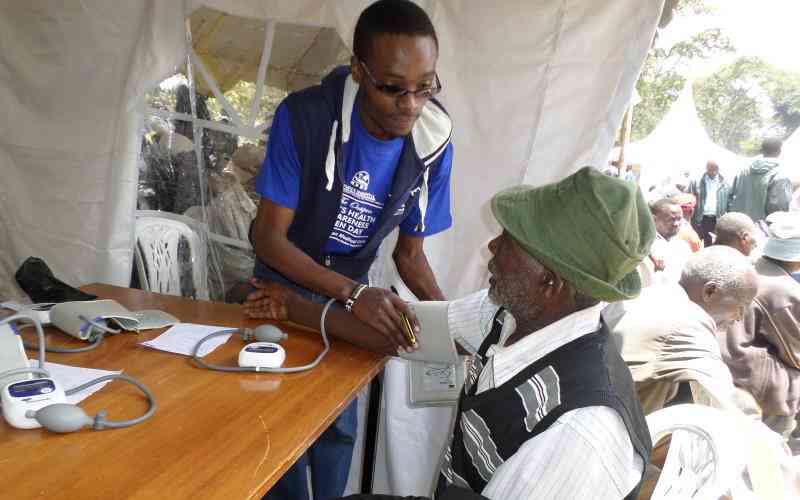Chlamydia, a sexually transmitted disease has been mentioned as one of the causes of infertility in the Kenyan population.
Whereas the disease is treatable, Dr Kireki Omanwa a fertility expert, said the current norm of having multiple sexual partners risk spreading the health crisis even further.
Dr Omanwa who is the Secretary General to the Kenya Obstetrics and Gynaecologist Society (Kogs) said at least one in every three consultations done by a gynaecologist is a fertility case.
“Most of these cases are a result of blocked tubes (fallopian and urethra) which are a consequence of STDs,” said Omanwa.
One challenge of chlamydia, said Dr Omanwa is that it does not show symptoms, and by the time they show, the fallopian tubes in women and urethra in men is already blocked.
“As a man, you may think that you are being macho when you have multiple sexual partners, but what you don’t know is that maybe you are spreading the virus to others who will in turn infect their partners as well,” said Omanwa.
In women, according to zavamed.com, the bacterial disease causes inflammation of the cervix and ectopic pregnancy (development of embryo outside of the uterus).
In men, the disease causes epididymitis which is the inflammation of the tube that carries sperms.
Dr Omanwa added that studies have also shown that women of African descent are more likely to be affected with fibroids, abnormal growths in a woman’s reproductive system which significantly reduces the chances of conceiving by between 40 and 60 per cent.
Endometriosis, which are also growths affecting women has also been linked to infertility. First symptoms of this disease is painful periods.
“Some of these growths could not be picked back when women used to start having children as early as 13 years and have more every two years so there was no room for these abnormal growths to develop,” Omanwa explained.
Today, such growths are easily diagnosed as most women do wait until they are advanced in years to have children, which in itself reduced chances of conceiving due to age.
According to a 2016 World Bank report, fertility rate in Kenya has reduced significantly from seven children in 1965 to three in 2016. One of the reasons is due to change in lifestyle, which the fertility expert noted that has also affected men with low sperm count.
This is while there is an increase in cases of teenage pregnancies according to United Nations Population Fund (UNFPA) which in 2018 estimated that 378,400 adolescent girls in Kenya aged between 10 and 19 years became pregnant between July 2016 and June 2017.
Omanwa noted that to get a man with a sperm count of 50 million is termed as good today, compared to back in the 70s when 200 million was a good sperm count.
"While this can be linked to lifestyles and some Non Communicable Disease (NCDs) like diabetes and hypertension, there are cases where you get a young healthy man, who does not drink, does not smoke and has no prevailing medical history but he has a low sperm count," said Kireki.
A big challenge, Omanwa said, is the lack of specialists in the country to handle these increasing case.
For example, there are three Kenyan embryologists-one of them works abroad while the other two practice as general physicians.
This has left a lot of room for foreign specialists to put up camp in the country, or are sought after on demand basis: "What this means is that the cost of getting treatment goes even higher."
Omanwa, who also took part in the drafting of the Assisted Reproductive Technology bill by Suba North MP Millie Odhiambo said it is important for the country to have regulations so that Kenyans are not taken advantage of by some foreign specialists.
"Yes the bill might have gaps, but it is better to have something in place and we will keep on revising it," said he added
 The Standard Group Plc is a multi-media organization with investments in media platforms spanning newspaper print
operations, television, radio broadcasting, digital and online services. The Standard Group is recognized as a
leading multi-media house in Kenya with a key influence in matters of national and international interest.
The Standard Group Plc is a multi-media organization with investments in media platforms spanning newspaper print
operations, television, radio broadcasting, digital and online services. The Standard Group is recognized as a
leading multi-media house in Kenya with a key influence in matters of national and international interest.











